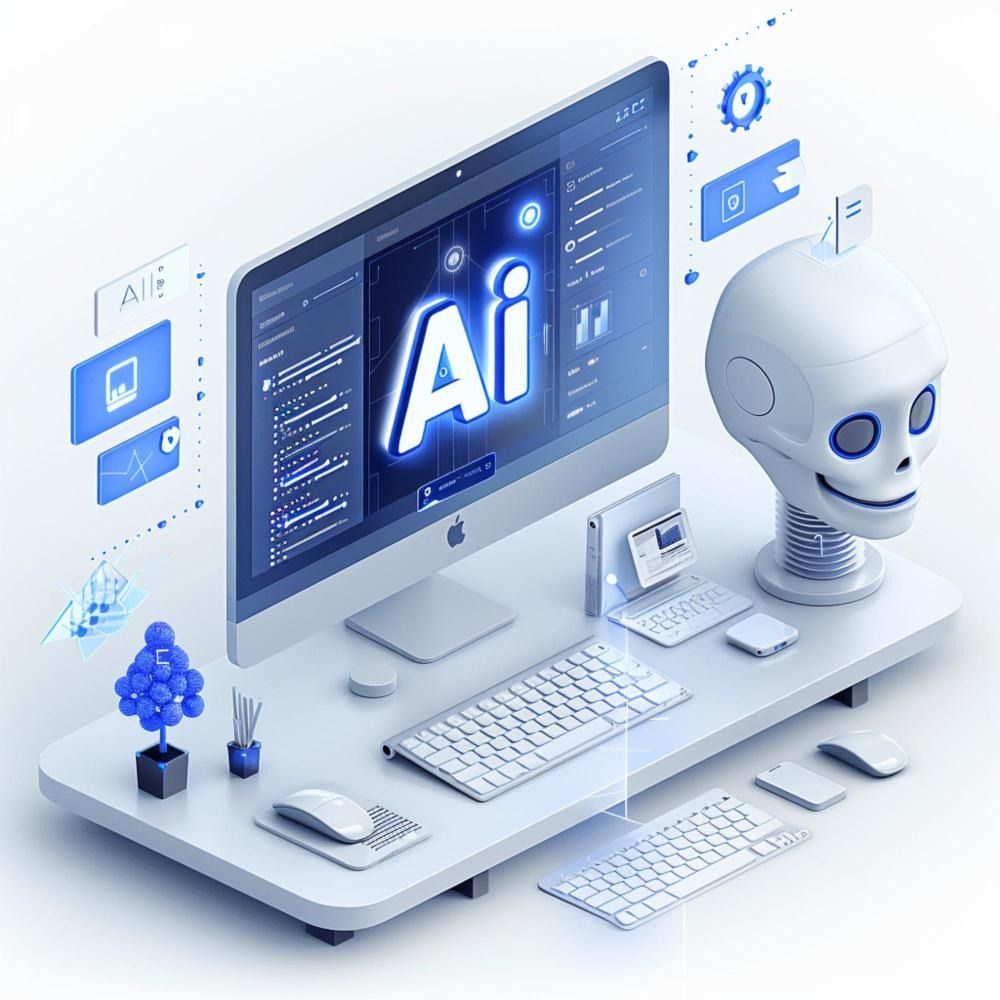

Let’s learn more about this topic below with Bottle Flip. In today’s competitive business landscape, sales teams are constantly seeking innovative ways to boost revenue and improve lead conversion rates. Artificial intelligence (AI) tools have emerged as game-changers in this pursuit.
Artificial intelligence has revolutionized numerous industries, and sales is no exception. AI-powered tools have become indispensable for businesses looking to streamline their sales processes, enhance customer interactions, and ultimately drive revenue growth. These advanced technologies leverage machine learning algorithms and data analytics to provide valuable insights, automate repetitive tasks, and personalize customer experiences. As the Bottle Flip trend took the internet by storm, demonstrating how simple concepts can capture widespread attention, AI tools are similarly transforming the sales landscape with their innovative approaches.
The integration of AI in sales has opened up new possibilities for businesses to optimize their strategies and achieve better results. By analyzing vast amounts of data, AI tools can identify patterns, predict customer behavior, and offer actionable recommendations to sales teams. This data-driven approach enables sales professionals to make informed decisions, prioritize leads, and tailor their pitches to individual prospects. Moreover, AI-powered chatbots and virtual assistants are revolutionizing customer service, providing instant support and freeing up human agents to focus on more complex tasks.
In the ever-evolving world of sales, staying ahead of the competition requires embracing cutting-edge technologies. Here are some of the most powerful AI tools that are transforming the sales landscape and helping businesses achieve remarkable results:
Predictive lead scoring tools use AI algorithms to analyze historical data and identify the characteristics of high-quality leads. By assigning scores to potential customers based on their likelihood to convert, these tools help sales teams prioritize their efforts and focus on the most promising opportunities. Just as the Bottle Flip challenge required precision and timing, predictive lead scoring allows sales professionals to target their efforts with pinpoint accuracy.
These AI-powered tools consider various factors such as demographic information, online behavior, engagement history, and purchase patterns to determine the potential value of each lead. By automating this process, sales teams can save time and resources while increasing their chances of closing deals. Some popular predictive lead scoring tools include Leadspace, Infer, and MadKudu.
Conversational AI and chatbots have revolutionized customer interactions, providing instant support and personalized experiences around the clock. These AI-powered virtual assistants can handle routine inquiries, qualify leads, and even schedule appointments, freeing up human sales representatives to focus on more complex tasks. Like the viral spread of the Bottle Flip challenge, conversational AI has quickly become a must-have tool for businesses looking to enhance customer engagement and streamline their sales processes.
Advanced chatbots leverage natural language processing (NLP) and machine learning to understand and respond to customer queries in a human-like manner. They can guide prospects through the sales funnel, provide product recommendations, and offer personalized support based on individual preferences and browsing history. Some leading conversational AI platforms include Drift, Intercom, and Salesforce Einstein.
AI-powered sales forecasting and analytics tools use historical data, market trends, and predictive modeling to provide accurate sales predictions and valuable insights. These tools help sales managers make data-driven decisions, optimize resource allocation, and identify potential roadblocks in the sales process. Just as mastering the Bottle Flip required practice and analysis of technique, sales forecasting tools enable businesses to refine their strategies based on concrete data.
Advanced sales analytics platforms can analyze vast amounts of data from various sources, including CRM systems, social media, and external market indicators. They can identify patterns, trends, and correlations that may not be apparent to human analysts, providing valuable insights for strategic decision-making. Some popular sales forecasting and analytics tools include Salesforce Einstein Analytics, InsightSquared, and Clari.
Customer Relationship Management (CRM) systems have long been essential for sales teams, but the integration of AI has taken them to new heights. AI-powered CRM tools offer advanced features that help sales professionals manage their relationships with customers more effectively and efficiently. These tools can automate data entry, provide intelligent insights, and even suggest next best actions based on historical data and customer interactions.
AI-powered CRM systems can analyze customer behavior and engagement patterns to create personalized nurturing campaigns. These tools can automatically send targeted content, emails, and offers to leads based on their interests and stage in the sales funnel. Like the precision required in a successful Bottle Flip, intelligent lead nurturing ensures that each interaction with a potential customer is tailored and timely.
By leveraging machine learning algorithms, these systems can continuously optimize their nurturing strategies based on the success rates of different approaches. This data-driven approach helps sales teams maximize their conversion rates and build stronger relationships with prospects. Some popular AI-enhanced CRM platforms include Salesforce Einstein, HubSpot, and Zoho CRM with AI capabilities.
AI-powered sentiment analysis tools can analyze customer communications, such as emails, chat logs, and social media interactions, to gauge the emotional tone and sentiment behind the messages. This valuable insight helps sales representatives tailor their approach and respond appropriately to customer needs and concerns. Just as the Bottle Flip challenge elicited various emotional responses from participants and viewers, sentiment analysis allows sales teams to tap into the emotional aspects of customer interactions.
By understanding the sentiment behind customer communications, sales professionals can identify potential issues early on, address concerns proactively, and capitalize on positive sentiment to drive sales. Some leading sentiment analysis tools include IBM Watson Tone Analyzer, Google Cloud Natural Language API, and Salesforce Einstein Sentiment.
Artificial intelligence is not only transforming how sales teams interact with customers but also how they learn and improve their skills. AI-powered training and performance improvement tools offer personalized learning experiences, real-time feedback, and data-driven insights to help sales professionals enhance their capabilities and achieve better results.
AI-powered virtual sales coaches use natural language processing and machine learning to analyze sales calls, emails, and other customer interactions. These tools provide real-time feedback and suggestions to help sales representatives improve their communication skills, objection handling, and overall performance. Like mastering the Bottle Flip technique through practice and feedback, virtual sales coaching allows sales professionals to refine their skills continuously.
These AI coaches can identify areas for improvement, such as tone of voice, word choice, and pacing, and offer personalized recommendations based on successful patterns observed in top-performing sales reps. Some popular virtual sales coaching platforms include Gong.io, Chorus.ai, and ExecVision.
AI-powered performance analytics tools can track and analyze various metrics related to sales performance, providing insights into individual and team productivity, conversion rates, and other key performance indicators (KPIs). These tools often incorporate gamification elements to motivate sales teams and foster healthy competition. Just as the Bottle Flip challenge sparked competitive spirit among participants, gamified performance analytics can drive sales teams to achieve higher levels of success.
By leveraging AI algorithms, these platforms can identify patterns and trends in sales performance, highlighting best practices and areas for improvement. They can also provide personalized recommendations and learning resources based on individual performance data. Some leading performance analytics and gamification tools include Xactly Insights, LevelEleven, and Hoopla.
As artificial intelligence continues to evolve and improve, its impact on the sales industry is only expected to grow. The future of AI in sales holds exciting possibilities, including more advanced predictive analytics, enhanced personalization, and even AI-powered sales assistants that can handle complex negotiations. Just as the Bottle Flip phenomenon demonstrated how a simple concept could capture global attention, AI tools are set to revolutionize the sales landscape in ways we may not yet fully comprehend.
One area of particular interest is the development of AI systems that can understand and respond to complex human emotions and intentions. These advanced AI tools could potentially read subtle cues in facial expressions, tone of voice, and body language during sales interactions, providing sales representatives with real-time insights and suggestions for building rapport and closing deals.